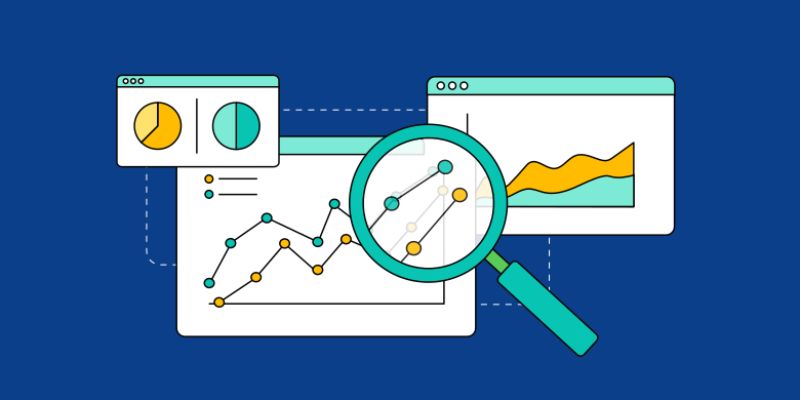
In today’s digital age, the success of your online presence hinges on the effective use of analytics to drive your SEO and marketing campaigns. By leveraging data insights, businesses can fine-tune their strategies, ensuring maximum impact and return on investment. Whether you are working with an in-house team or partnering with a digital marketing agency, here’s how to harness analytics to enhance your SEO and marketing efforts.
Understanding the Basics
Analytics involves the systematic computational analysis of data or statistics. When applied to SEO (Search Engine Optimization) and marketing, it means using tools like Google Analytics, SEMrush, Ahrefs, and others to gather, interpret, and act on data related to your website’s performance and your marketing campaigns’ effectiveness.
Setting Clear Goals
Before diving into the analytics, it’s essential to set clear, measurable goals for your SEO and marketing campaigns. These could range from increasing website traffic and improving search engine rankings to boosting conversion rates and enhancing user engagement. Clear goals provide a benchmark against which you can measure the success of your efforts.
Tracking the Right Metrics
To improve your SEO and marketing campaigns, focus on tracking the right metrics. For SEO, key metrics include organic traffic, bounce rate, page load times, keyword rankings, and backlinks. For marketing campaigns, metrics like click-through rates (CTR), conversion rates, cost per acquisition (CPA), and return on investment (ROI) are crucial.
Organic Traffic: This metric shows how many visitors come to your site through search engines. An increase in organic traffic indicates successful SEO efforts.
Bounce Rate: This measures the percentage of visitors who leave your site after viewing only one page. A high bounce rate may suggest that your site content is not engaging or relevant.
Keyword Rankings: Tracking how your target keywords rank on search engines helps gauge the effectiveness of your SEO strategies.
Backlinks: The number and quality of backlinks to your site influence your search engine ranking. Analytics can help identify new backlink opportunities and track the impact of your link-building efforts.
Conversion Rates: This metric shows the percentage of visitors who complete a desired action, such as making a purchase or signing up for a newsletter, indicating the effectiveness of your marketing campaigns.
CPA and ROI: These metrics help measure the cost-effectiveness of your marketing efforts, providing insights into where to allocate your budget for maximum impact.
Using Analytics to Optimize SEO
SEO companies in Chennai often leverage analytics to fine-tune their strategies. Here’s how:
Keyword Optimization: Use tools like Google Analytics and SEMrush to identify high-performing keywords and optimize your content accordingly. Look for keywords with high search volume but low competition for the best results.
Content Performance: Analyze which types of content generate the most engagement and conversions. Focus on creating more of what works and updating or removing underperforming content.
Technical SEO: Analytics tools can identify technical issues that might be hindering your site’s performance, such as slow page load times, broken links, or mobile usability issues. Addressing these can significantly improve your SEO.
User Behavior: Understanding how users navigate your site can provide insights into improving the user experience. Look at metrics like average session duration and pages per session to identify areas for improvement.
Enhancing Marketing Campaigns with Analytics
Digital Marketing companies in Chennai use analytics to refine marketing campaigns by:
Audience Segmentation: Analytics can help you understand your audience better, allowing you to create more targeted and personalized campaigns. Segment your audience based on demographics, behavior, and preferences to tailor your marketing messages.
A/B Testing: Use analytics to conduct A/B tests on different versions of your ads, emails, or landing pages to determine which performs better. This data-driven approach helps in making informed decisions.
Performance Tracking: Continuously monitor the performance of your campaigns using analytics tools. Identify which channels (social media, email, PPC) are driving the most conversions and allocate your resources accordingly.
Adjusting Strategies: Based on the insights gathered, adjust your strategies in real-time. For instance, if a particular campaign isn’t performing well, analytics can help pinpoint the issue, allowing you to make necessary changes quickly.
The power of analytics in improving SEO and marketing campaigns cannot be overstated. By diligently tracking and analyzing relevant metrics, businesses can gain invaluable insights into their performance, enabling them to optimize their strategies effectively. Whether collaborating with SEO companies or a digital marketing agency, leveraging analytics is key to staying ahead in the competitive digital landscape.







